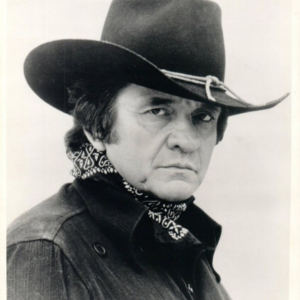
Johnny Cash’s rendition of “Cocaine Blues” is a stark, unflinching exploration of the darker side of the American experience. This blues ballad, originally penned by T.J. Arnall, found its most potent expression through the Man in Black’s gritty vocals and the stark, minimalist instrumentation that characterized his signature sound.
Background
Released in 1968 as part of the iconic At Folsom Prison album, “Cocaine Blues” stands as a haunting testament to Cash’s ability to transform traditional material into a deeply personal and resonant narrative. The song’s raw, unfiltered lyrics, coupled with the stark acoustics of the prison environment, create a chilling atmosphere that is both captivating and disturbing.
Cash’s interpretation of “Cocaine Blues” is a far cry from the often-sensationalized portrayals of drug culture. Instead, it delves into the tragic consequences of addiction, painting a portrait of desperation, regret, and ultimately, a life irrevocably altered by a destructive habit. The song’s narrative unfolds with a stark simplicity, avoiding moralizing or judgmental tones. Instead, it presents a cold, hard look at the human cost of addiction.
The song’s structure is classic blues form, with repetitive verses that gradually build tension and intensity. Cash’s vocal delivery is a masterclass in restraint, his voice conveying a world of pain and regret without resorting to melodrama. The minimalist instrumentation, featuring acoustic guitar and subtle percussion, serves to underscore the song’s stark, stripped-down quality.
“Cocaine Blues” is more than just a song; it’s a social commentary, a character study, and a haunting reflection on the human condition. Cash’s performance transforms the material into a timeless piece of Americana, a stark reminder of the destructive power of addiction and the resilience of the human spirit.
The song’s impact extends far beyond its musical merits. It has become a touchstone for discussions on addiction, crime, and the complexities of the human experience. Cash’s unflinching portrayal of a character caught in the grip of despair has resonated with audiences for generations, making “Cocaine Blues” a powerful and enduring work of art.
By choosing to interpret “Cocaine Blues” within the confines of Folsom Prison, Cash added an extra layer of depth to the song. The prison setting serves as a microcosm of society, a place where individuals are stripped of their freedoms and forced to confront the consequences of their actions. The song’s themes of isolation, regret, and the search for redemption are amplified by the prison environment, creating a sense of claustrophobia and despair.
Cash’s ability to connect with the inmates on a human level is evident in the raw emotion of his performance. His voice, filled with both empathy and judgment, reflects the complex emotions that arise when confronted with the human cost of addiction. The audience’s response to the song, captured on the At Folsom Prison album, is a testament to the raw power of Cash’s performance.
“Cocaine Blues” is a stark reminder of the destructive power of addiction and the importance of empathy and understanding. It is a song that challenges listeners to confront their own preconceptions and to see individuals struggling with addiction as complex human beings rather than simply as criminals or victims.
Video
Through his interpretation of “Cocaine Blues,” Johnny Cash has created a timeless masterpiece that continues to resonate with audiences today. The song’s enduring power lies in its unflinching honesty, its raw emotional impact, and its ability to spark important conversations about addiction, crime, and the human condition.